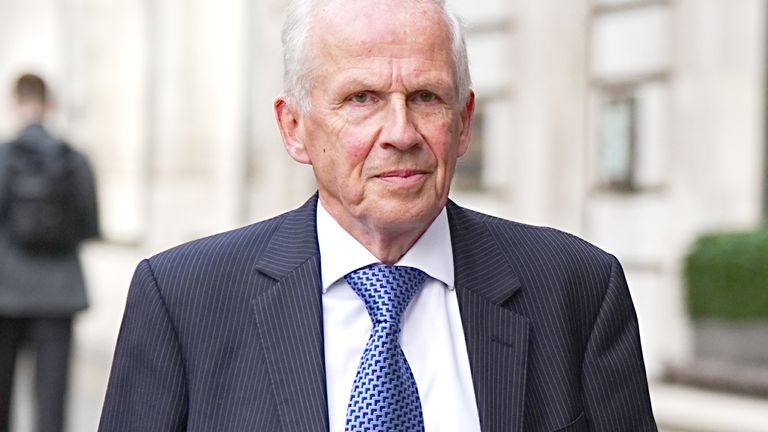Telegraph Money’s new Millennial Investor Imogen Tew, 28, has a baby on the way and hopes to buy a bigger house. After years of neglecting her portfolio, she needs help to become a better investor. Can you offer her any words of wisdom?
I had little interest in the debate that stirred recently over the latest England football kit and its use – or lack of use – of the traditional St George’s flag. The story didn’t rile any strong feelings in me either way, and I am sure that when the Euros kicks off this summer there won’t be any grounds for complaints over a dearth of English flags across the country.
Don’t take this as a lack of patriotism on my part, however. Nor in football (I spent the entire penalty shootout of the last Euros final hiding behind a chair), nor in my investment choices. For my portfolio overhaul, I need to pick four or five “satellite” funds that will sit alongside my “core” global investments, and I want a UK fund to be one of these.
More seasoned investors might be surprised to see the UK considered a “satellite” position when it used to be by far the highest allocation for UK investors, but home bias is an increasingly dated concept.
If I were going to make my investment decision based on my returns so far, I would be sticking with the big guns: the FTSE 100, which is an index made up of the largest companies in the UK. Since July 2021, my FTSE 100 tracker fund (a cheap fund that tracks the performance of an index) has returned 11pc.
My investment in smaller companies has been less fruitful. The Tellworth UK Smaller Companies fund, which invests in companies worth between £100m and £500m, has lost 23pc since I invested, while Amati UK Listed Smaller Companies, which invests across both the alternative investment market (Aim) and the main market, has lost 36pc. Between them, I’ve lost about £300 of the £1,000 I put behind them.
But as any T&Cs worth their salt will tell you, past performance is not indicative of future returns.
While larger companies have outperformed over the past three years, over the long term mid- and small-cap funds typically do better. Looking forward, the smaller end of the market could be ripe for a boom.
Firstly, the UK is a bargain. Larger companies are cheap, trading at 10.8 times their forward price-to-earnings ratio, compared to a long-term history of 12.5, but the mid-cap index is even cheaper, trading at 10.9 times compared to a long-term average of 13.9.
As Darius McDermott, managing director of Chelsea Financial Services, said: “We know the UK is cheap, but the real long-term opportunity lies in the market cap.”
Then there is the idea that smaller and medium-sized companies may benefit more than larger companies from any interest rate cuts we see this year. If rates are cut, consumers and businesses should be under less pressure financially and might spend more money, and the earnings of mid-cap companies may grow faster than larger companies in this environment.
“You might want to look at mid- and small-caps as these should provide higher capital growth, and there is a feeling they could benefit from interest rate cuts,” suggested Daniel Coatsworth, an investment analyst at AJ Bell. He also pointed out that around three quarters of companies in the FTSE 100 generate their revenue outside of the UK, so looking elsewhere will give me greater UK economic exposure.
Large caps in the UK are good for income investors – the UK offers one of the best yields of any equity market – but growth is more appealing for my circumstances.
In terms of which fund, the winner is Fidelity UK Smaller Companies. I want a mix of mid- and small-caps (the smaller end tends to offer more risk but higher growth prospects, so I’m happy with a balance), and this fund offers just that.
Its method – to look for companies that have gone through a bad patch but where there are signs of positive change – is also compelling, particularly for my portfolio. This investing style, part of “value” investing, also serves as a good balance to some of the more “growth”-oriented funds that I already have in my portfolio, such as the Baillie Gifford China fund.
And its track record is great: over the past three years, it’s returned 19pc at a time when other smaller companies’ funds have lost an average of 15pc. Holdings include the defence engineer Babcock, the share price of which has risen by 71pc over the past year, and Serco Group, which is up 22pc. The manager, Jonathan Winton, has done a good job since he took the reins in 2014.
It’s a shame that arguably, the same can’t be said for Gareth Southgate’s performance – but I’ll be backing both managers for the foreseeable, regardless.
Disclaimer: The copyright of this article belongs to the original author. Reposting this article is solely for the purpose of information dissemination and does not constitute any investment advice. If there is any infringement, please contact us immediately. We will make corrections or deletions as necessary. Thank you.


